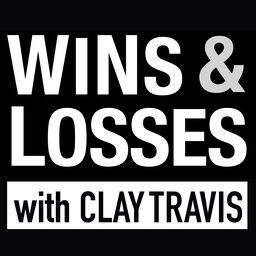Clay Travis spends some time with SEC Commissioner Greg Sankey
SEC Commissioner Greg Sankey joins Clay Travis for an in-depth discussion of his life and career. They discuss some wide ranging topics including what led him to a career in football (hint: he wanted to be an engineer), what he learned during his early career and how it set him up to be successful in his current position. And, they talk about his current concerns and direction for the SEC Conference.
Learn more about your ad-choices at https://www.iheartpodcastnetwork.com
 Wins & Losses with Clay Travis
Wins & Losses with Clay Travis


